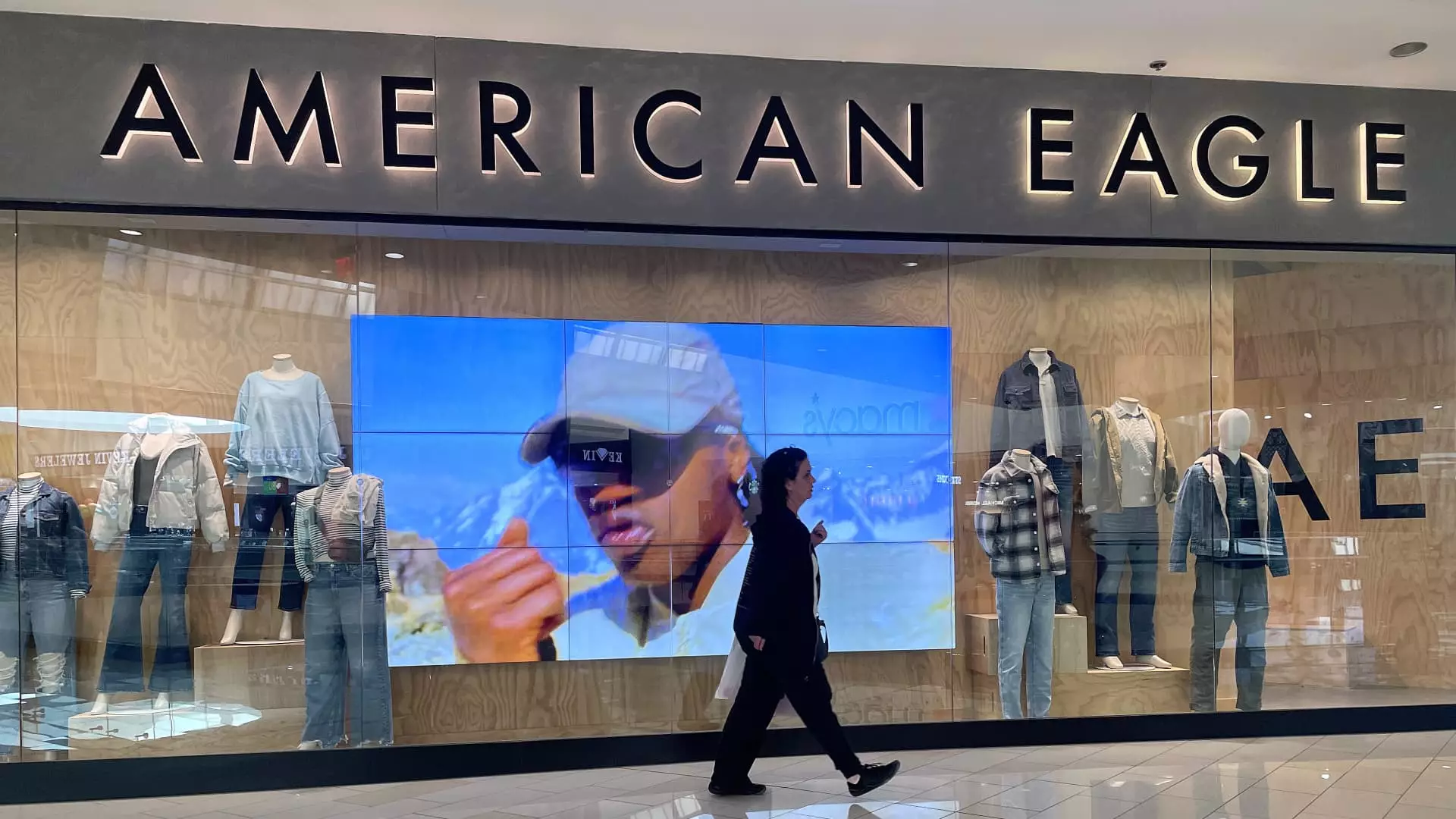In a significant legal clash, American Eagle Outfitters, the well-known apparel retailer, has initiated a lawsuit against Amazon, alleging that the e-commerce titan has engaged in trademark infringement by misusing branding elements from its Aerie clothing line. This case, filed in the U.S. District Court for the Southern District of New York, raises important questions about brand protection in the digital marketplace, particularly concerning the ways platforms like Amazon operate in relation to third-party sellers.
American Eagle claims that Amazon has been utilizing its trademarks associated with Aerie and Offline by Aerie in an unauthorized manner, leading consumers to mistakenly purchase inferior-quality imitation products rather than genuine items from the Aerie line. The lawsuit underscores the seriousness of these accusations by describing Amazon’s practices as “flagrant” and deceptive, asserting that they mislead shoppers into believing they are purchasing authentic Aerie products directly from the retailer when, in fact, they are being redirected to listings containing subpar alternatives.
American Eagle argues that it never authorized Amazon to carry Aerie merchandise, asserting that its decision to withhold permission was intentional. This decision, they argue, was made to cultivate a specific brand identity and optimize the customer experience associated with Aerie. Such claims highlight a deeper concern regarding the integrity of brand identity in an age where online retail dominates shopping behavior.
The lawsuit illustrates how search engine results can significantly impact consumer behavior. When customers search for Aerie products on Google, the inclusion of Amazon links—both sponsored and organic—misleads customers into believing they are exploring a legitimate Aerie shopping experience. Instead, they frequently find themselves bombarded with substandard alternatives, a misalignment that not only harms the reputation of Aerie but also undermines consumer trust in the broader digital retail experience.
American Eagle emphasizes that clicking these sponsored links leads to pages showcasing counterfeit or inferior products, such as sweatshirts and exercise shorts that do not meet Aerie’s quality standards. This misrepresentation is central to their lawsuit, which posits that Amazon’s advertising is fundamentally deceptive, suggesting that shoppers can engage with Aerie directly when they cannot.
A crucial element of this case revolves around the role of third-party sellers on Amazon’s marketplace. Founded in the year 2000, Amazon’s platform allows various businesses to sell their products alongside those of well-known retailers. Unfortunately, this model has led to frequent complaints about counterfeit goods. The allegations by American Eagle are not isolated—many brands, from footwear companies to automotive manufacturers, have raised similar concerns over counterfeit products proliferating on Amazon.
Throughout the years, Amazon has faced mounting scrutiny for not doing enough to prevent counterfeit products from appearing on its site. The retailer attempted to address these concerns by enhancing its measures against counterfeiters, such as escalating legal actions against those selling fake goods and introducing new technologies designed to bolster brand protection. Despite these initiatives, American Eagle’s lawsuit illustrates that significant issues remain unaddressed.
As American Eagle seeks an injunction as well as financial recompense for the alleged trademark infringements, this lawsuit emphasizes broader implications for e-commerce and brand protection in a digital world increasingly populated by third-party selling platforms. It raises critical questions regarding the responsibility of retailers such as Amazon to protect the intellectual property of brands while maintaining a marketplace that thrives on competition and diversity.
In the face of these challenges, companies must remain vigilant about their trademarks and ensure they are safeguarded against infringement. Similarly, platforms like Amazon may need to reconsider their operational models to ensure that they not only foster a thriving marketplace but also uphold the integrity and authenticity demanded by consumers. The outcome of this legal battle could set important precedents that might shape the intersection of e-commerce and brand protection in the years to come.


Leave a Reply